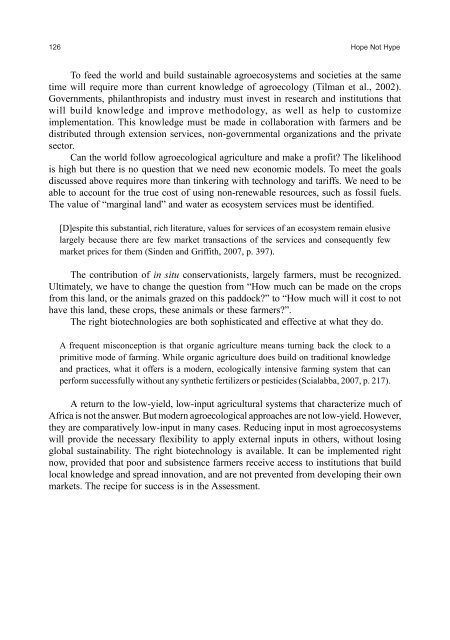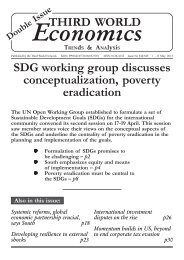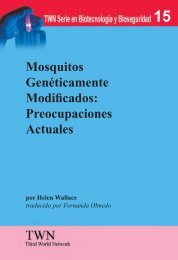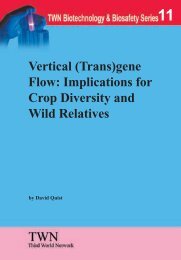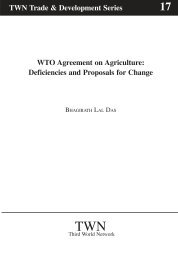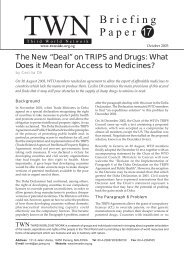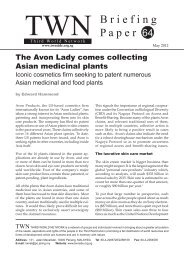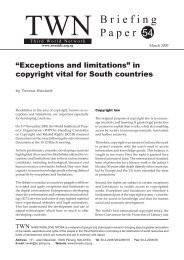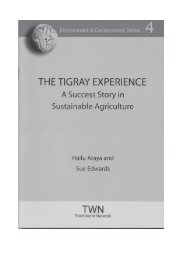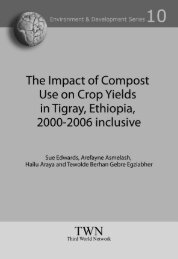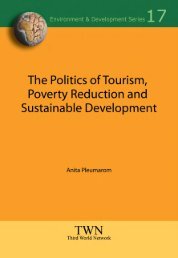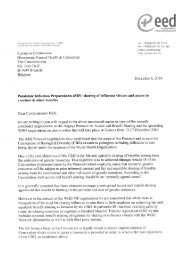Hope Not Hype - Third World Network
Hope Not Hype - Third World Network
Hope Not Hype - Third World Network
- No tags were found...
Create successful ePaper yourself
Turn your PDF publications into a flip-book with our unique Google optimized e-Paper software.
126 <strong>Hope</strong> <strong>Not</strong> <strong>Hype</strong><br />
To feed the world and build sustainable agroecosystems and societies at the same<br />
time will require more than current knowledge of agroecology (Tilman et al., 2002).<br />
Governments, philanthropists and industry must invest in research and institutions that<br />
will build knowledge and improve methodology, as well as help to customize<br />
implementation. This knowledge must be made in collaboration with farmers and be<br />
distributed through extension services, non-governmental organizations and the private<br />
sector.<br />
Can the world follow agroecological agriculture and make a profit The likelihood<br />
is high but there is no question that we need new economic models. To meet the goals<br />
discussed above requires more than tinkering with technology and tariffs. We need to be<br />
able to account for the true cost of using non-renewable resources, such as fossil fuels.<br />
The value of “marginal land” and water as ecosystem services must be identified.<br />
[D]espite this substantial, rich literature, values for services of an ecosystem remain elusive<br />
largely because there are few market transactions of the services and consequently few<br />
market prices for them (Sinden and Griffith, 2007, p. 397).<br />
The contribution of in situ conservationists, largely farmers, must be recognized.<br />
Ultimately, we have to change the question from “How much can be made on the crops<br />
from this land, or the animals grazed on this paddock” to “How much will it cost to not<br />
have this land, these crops, these animals or these farmers”.<br />
The right biotechnologies are both sophisticated and effective at what they do.<br />
A frequent misconception is that organic agriculture means turning back the clock to a<br />
primitive mode of farming. While organic agriculture does build on traditional knowledge<br />
and practices, what it offers is a modern, ecologically intensive farming system that can<br />
perform successfully without any synthetic fertilizers or pesticides (Scialabba, 2007, p. 217).<br />
A return to the low-yield, low-input agricultural systems that characterize much of<br />
Africa is not the answer. But modern agroecological approaches are not low-yield. However,<br />
they are comparatively low-input in many cases. Reducing input in most agroecosystems<br />
will provide the necessary flexibility to apply external inputs in others, without losing<br />
global sustainability. The right biotechnology is available. It can be implemented right<br />
now, provided that poor and subsistence farmers receive access to institutions that build<br />
local knowledge and spread innovation, and are not prevented from developing their own<br />
markets. The recipe for success is in the Assessment.


